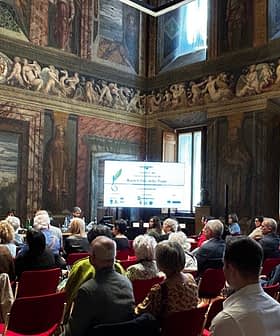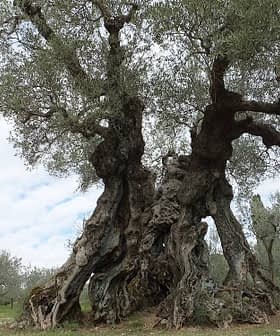The first thing an olive producer might tell you is the number of generations that his or her family has farmed their estate, and the age of their oldest tree. Most producers also admit that they are in the business for reasons more important than making money. For many Spaniards, an olive tree represents not just fruit, oil and wood; it is their roots, heritage and part of their soul. It is also over 2,000-years of history that many are struggling to continue.
However, when luxury landscapers and large companies offer 12,000, 15,000 or even 30,000 euros for a thousand-year-old tree, it can be difficult to refuse. There are mouths to feed and bills to pay.
Screenwriter, Paul Leverty, and film director, Icíar Bollaín, tap into this modern day dilemma in “El Olivo” (The Olive Tree), to be released in Spanish theaters on May 6th.
The film shares the emotional story of a family from Castellón that is confronted with economic difficulty and decides to leave the olive oil business to start a poultry farm. When the family opts to also sell their 2,000-year-old olive tree to a German energy company, the grandfather retorts that the olive tree is his life. To uproot the tree is akin to taking away his life. Despite his plea, the tree is shipped off to Dusseldorf and the grandfather stops speaking and eating.
Twelve years later, his 20-year old granddaughter, Alma (which translates to “soul” in Spanish), decides that she must get the tree back to save her grandfather. It takes her determination along with the help of her uncle, co-worker, friends and the entire Spanish village to find the tree.
In an interview on RTVE (Spanish Radio and Television Corporation), the director, Icíar Bollaín, discussed the film. She admitted that casting the perfect olive farmer was not easy. There are not many actors that have the hands and face of a man that has worked olive groves his entire life. However, as soon as she spotted olive farmer, Manuel Cuccala, getting off of his tractor one day, she said, “That’s him.” Cuccala had little acting experience. However, Bollaín noted, “He didn’t have any problem in identifying with the character. There is a scene where they say that they must sell the olive tree and he gets very emotional because he really does have a tree that he could never part with.”
In the interview the director also explains that it was not easy to create the scene where the tree is uprooted. Of course they could not uproot a real tree as it would go against what the film stood for. The only solution was to construct a replica of the tree, a process that took six months.
Bollaín points out that the film’s concept can be extrapolated to many present-day situations in Spain. She went on to say that Spaniards must care for and value their communities, heritage and landscapes. These three things, in the end, are the Spanish people. In caring for them, we care for ourselves.
Catalonia and Valencia have already begun various initiatives, both grassroots and legal, working towards saving age-old olive trees. There is a growing effort around Spain, especially in Andalusia, to celebrate the heritage and history of olive culture.
With the release of “El Olivo,” on May 6, Spanish as well as international audiences could become more aware of the invaluable legacy that was planted by Roman hands and remains deeply rooted in Spanish soil.
El Olivo
Production company: Morena Films, The Match Factory, El Olivo la Pelicula
Cast: Javier Gutierrez, Anna Castillo, Pep Ambros, Manuel Cucala, Miguel Angel Aladren
Director: Iciar Bollain
Screenwriter: Paul Laverty






